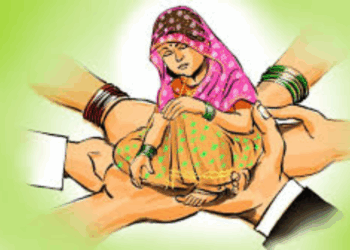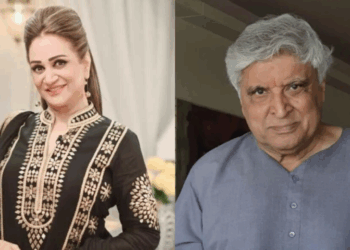Lahore, April 24, 2025: Pakistani actor Fawad Khan has condemned the recent terror attack in Pahalgam, Indian-Illegally Occupied Jammu and Kashmir (IIOJK), which claimed the lives of at least 26 people, most of them tourists.
In an Instagram story posted on Wednesday, Khan wrote: “Deeply saddened to hear the news of the heinous attack in Pahalgam. Our thoughts and prayers are with the victims of this horrifying incident, and we pray for strength and healing for their families in this difficult time.”
His statement comes amid growing outrage in India and rising calls to boycott his upcoming Bollywood film, Abir Gulaal, co-starring Indian actress Vaani Kapoor. The film is slated for a May 9 worldwide release.
Shortly after Khan’s post, the hashtag #BoycottAbirGulaal began trending on social media, with critics questioning the timing of his public reappearance and condemning the involvement of Pakistani talent in Indian cinema amid heightened geopolitical tensions.
The backlash intensified after the Federation of Western India Cine Employees (FWICE) issued a fresh directive, reinforcing its ban on Pakistani artists in Indian productions. In a statement, the FWICE condemned the Pahalgam attack and warned of disciplinary action against any Indian production house collaborating with Pakistani actors. The body also vowed to prevent the release of Abir Gulaal in Indian cinemas.
“This is not merely a policy—it is a principled stance in light of repeated attacks on our soil,” the statement read.
The Maharashtra Navnirman Sena (MNS) also weighed in, with its film wing head Ameya Khopkar declaring: “No film featuring Pakistani artists will be released in Maharashtra. We challenge the makers to release it.”
This isn’t the first time Fawad Khan has faced such backlash. Following the 2016 Uri attack, his appearance in Ae Dil Hai Mushkil sparked protests, prompting filmmaker Karan Johar to announce he would no longer work with Pakistani actors. Similarly, Shah Rukh Khan’s 2017 film Raees, which starred Mahira Khan, saw disruptions in its screening.
The controversy around Abir Gulaal also unfolds against the backdrop of a rapid diplomatic fallout from the Pahalgam incident. India has suspended provisions of the Indus Waters Treaty, closed the Integrated Check Post at Attari, and reduced the strength of the Pakistani High Commission in New Delhi. Furthermore, Pakistani nationals are now barred from entering India under the SAARC Visa Exemption Scheme.
As tensions rise, the fate of Abir Gulaal hangs in the balance, with political and public pressure mounting on both sides of the border.








